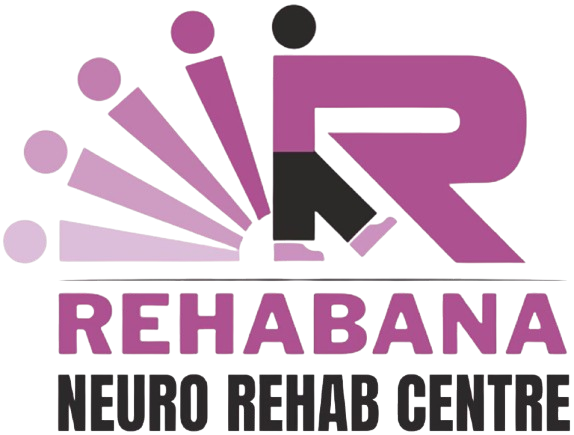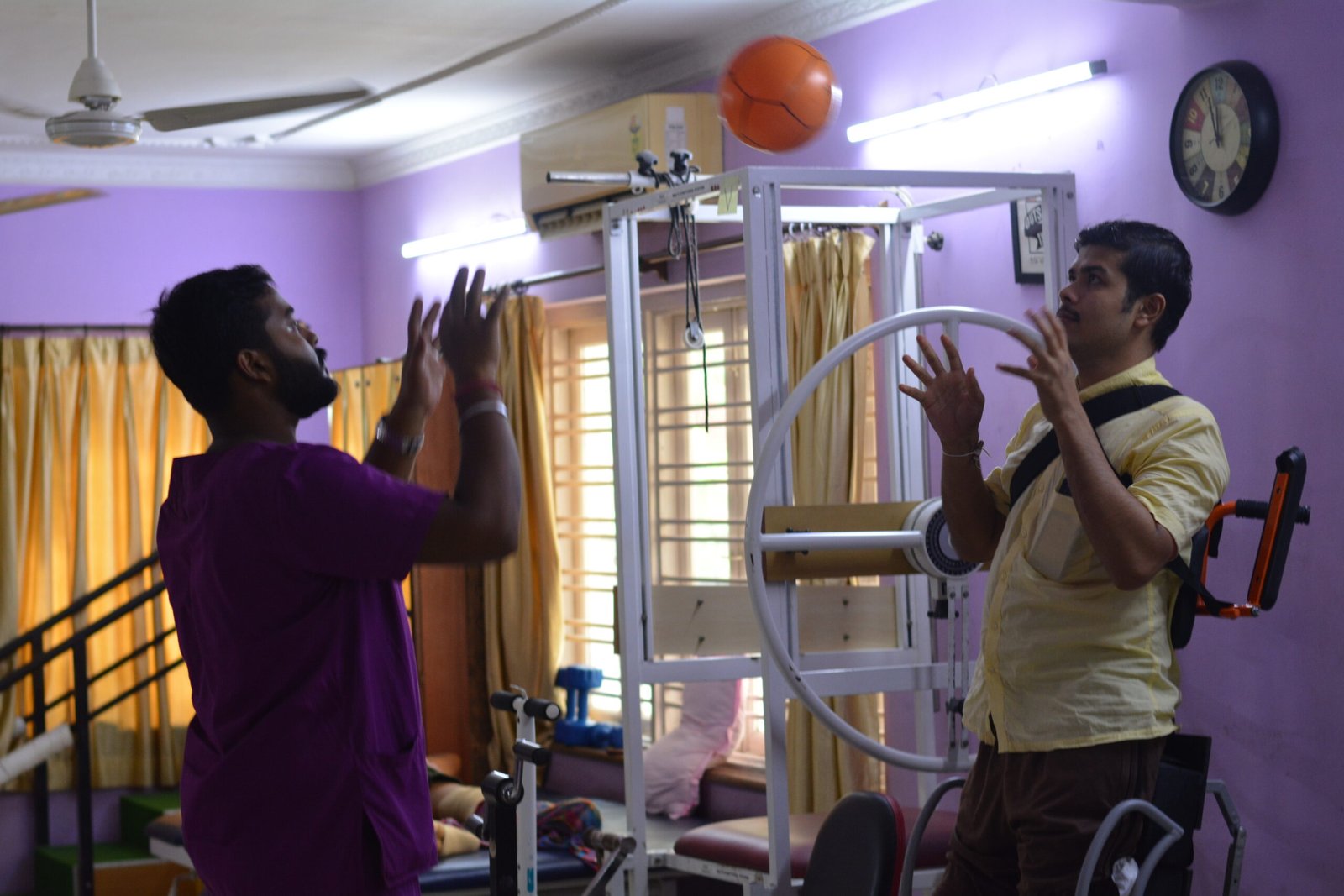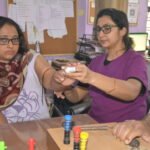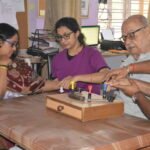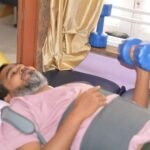Hospitals save lives. But rehabilitation centers give life back. They help people walk again, speak again, smile again, and live with dignity. Let’s talk about why their role in healthcare matters so much.
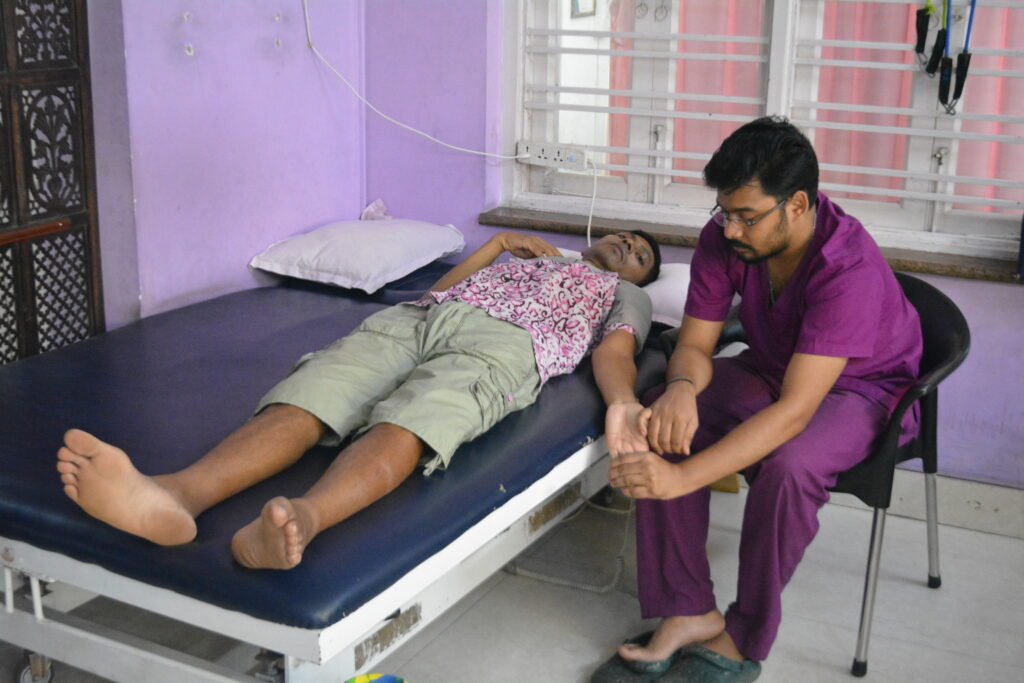
A story I see often at our centre goes like this.
A man in his 50s has a stroke. He is rushed to the hospital, where doctors and nurses do their best. They stabilize him, give him medicines, and after a week, the family is told: “He’s safe now.”
The family is relieved. But when they bring him home, a new reality unfolds. He cannot move one side of his body. He struggles to hold a spoon. Words get stuck in his throat. His wife sits by his side, helping him eat, helping him sit, helping him dress.
The hospital saved his life. But who will give him back the ability to live it?
This is where the role of rehabilitation centers in healthcare becomes so important.
Rehabilitation is not about curing an illness. It’s about helping people regain independence, dignity, and confidence after illness, injury, or addiction. Hospitals are for saving lives. Rehabilitation centers in kolkata are for giving life back.
Rehabilitation: The Missing Link in Healthcare
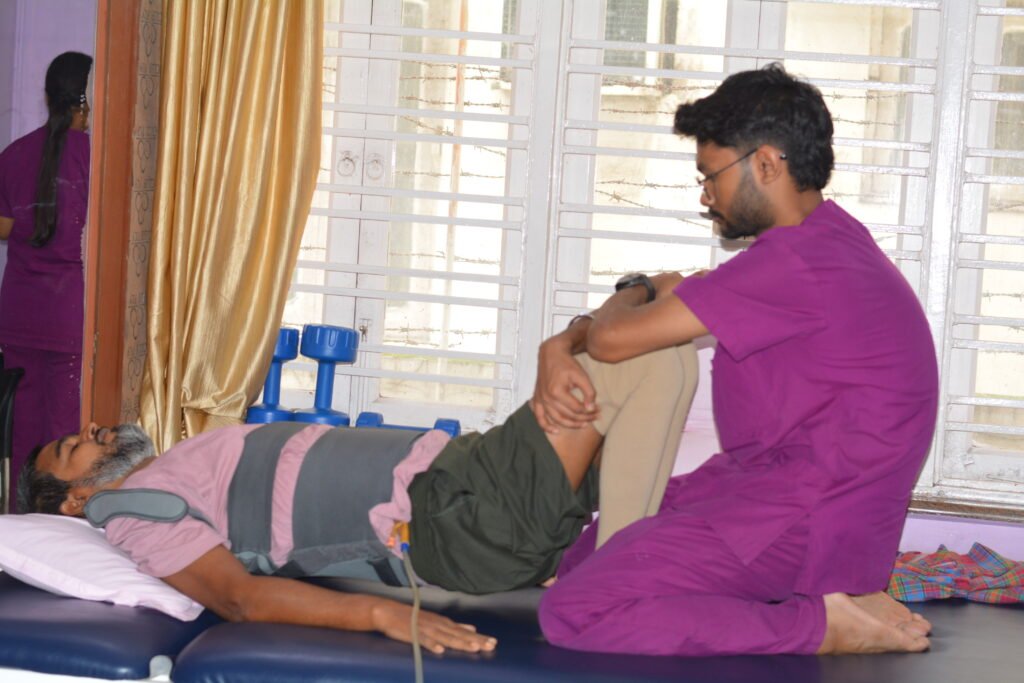
The World Health Organization (WHO) defines rehabilitation as a set of interventions designed to optimize function and reduce disability in individuals with health conditions.
But let me put it simply:
👉 Treatment saves life. Rehabilitation restores life.
Without rehabilitation, patients may survive but remain dependent. Families feel helpless. Caregivers feel burdened.
With rehabilitation, patients slowly reclaim life.
- A grandmother with Parkinson’s learns to walk safely to her balcony again.
- A stroke survivor eats with his own hand after months of therapy.
- A young man breaks free from drug addiction and returns to college.
- A cancer survivor regains the strength to cook a simple meal.
This is why rehabilitation is not “optional.” It is a crucial part of healthcare.
Misconceptions About Rehabilitation
One reason rehabilitation is often ignored is because people misunderstand it. Let’s clear up some common misconceptions about rehabilitation:
- “Rehabilitation is only for drug addiction.”
→ Yes, rehab centers treat drug and alcohol addiction. But they also help with stroke, spinal cord injury, cancer, neurological conditions, and mental health. - “Rehab means only physiotherapy.”
→ Rehab is much more. It includes physiotherapy, yes, but also occupational therapy, speech therapy, counseling, and continuing care. - “Rehabilitation is too costly.”
→ Hospital rehab can be expensive, but dedicated rehabilitation centres often offer affordable care programs and even community-based services. - “Rehab makes everything normal again.”
→ Rehab doesn’t promise miracles. But it promises progress, sometimes small, sometimes big—that makes life easier, more dignified, and more independent.
Breaking these myths is one of the first roles of rehabilitation centers: teaching families that rehab is not extra, it is essential.
Read This: Challenges of Rehabilitation in India
The Growing Need for Rehabilitation
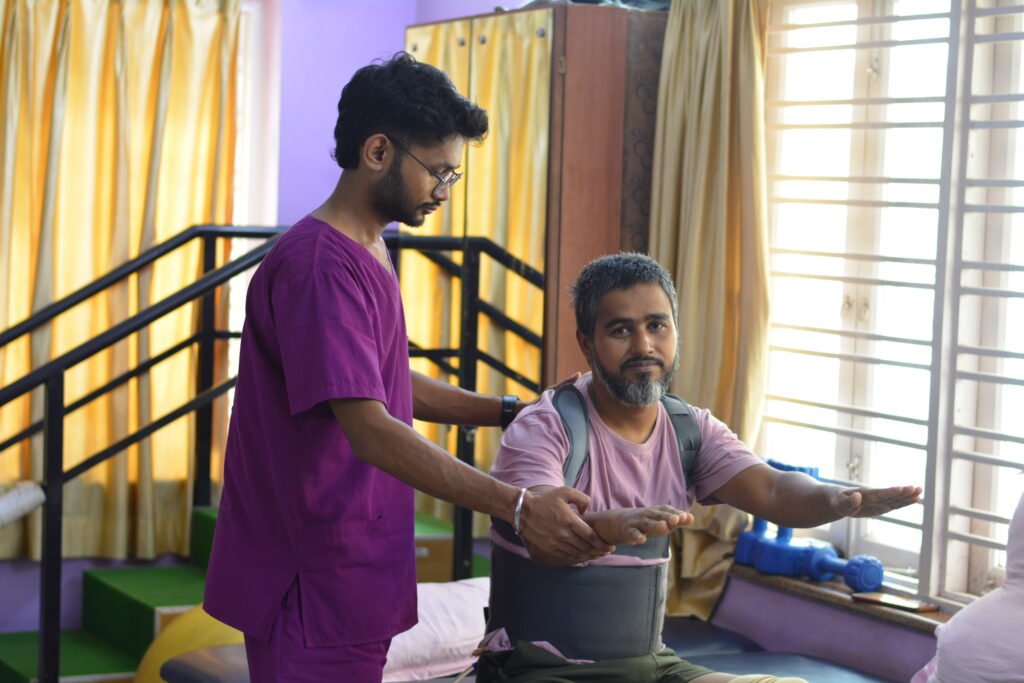
The need for rehabilitation has never been greater.
- Strokes and spinal cord injuries are on the rise.
- Road accidents in India create thousands of trauma patients every year.
- Cancer survivors need help to regain strength and reduce fatigue.
- Drug and alcohol addiction cases are widespread.
- Mental health disorders affect millions.
- India’s elderly population is growing fast, with balance issues, falls, and chronic conditions.
The World Health Organization estimates that nearly 2.4 billion people worldwide may need rehabilitation at some point. That’s one in three people.
This means almost every family will face a moment when rehabilitation is needed. The question is: Will the services be there when we need them?
That’s where rehabilitation centers come in.
Recommended: What Is Rehabilitation: How It Can Transform Your Life
The Role of Rehabilitation Centers in Healthcare
Now let’s talk about the heart of this blog, the role of rehabilitation centres in healthcare.
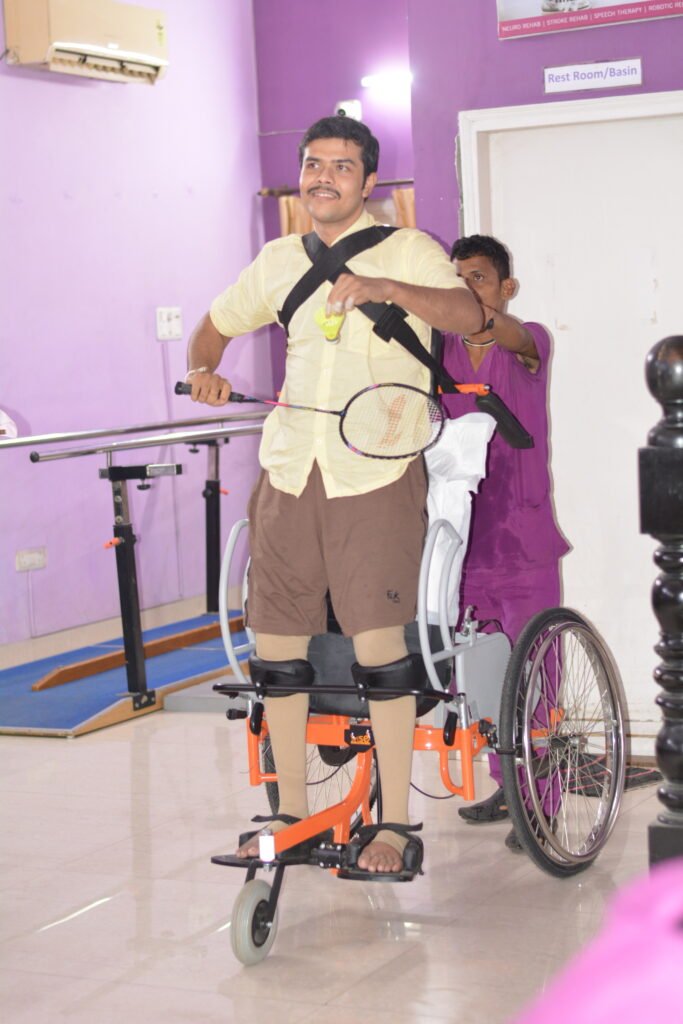
1. Putting the Person at the Centre
Hospitals focus on diseases: heart attack, stroke, fractures, cancer. But rehabilitation centres focus on people.
When a patient arrives at a rehab centre, the first questions are not, “What was the diagnosis?” but rather:
- Can you walk to the bathroom on your own?
- Can you feed yourself?
- Can you return to work or school?
- Can you talk to your family with ease?
- Can you enjoy small joys, like walking to the garden or holding your grandchild?
Rehab places the person at the centre of care. It’s about real life, not just medical charts.
2. Comprehensive Care Programs
Recovery is not one therapy, it’s a combination.
Rehab centres bring together different services into one care program:
- Physiotherapy for movement and strength.
- Occupational therapy for daily activities like dressing, cooking, and working.
- Speech therapy for communication and swallowing.
- Counseling for mental health and emotional struggles.
- Family training so caregivers feel confident, not helpless.
Instead of families running from one clinic to another, a rehab centre offers all these services under one roof.
3. Supporting Families and Caregivers
In India, families are the biggest caregivers. Spouses, children, even grandchildren take turns to care. But without proper training, families often feel lost.
Rehabilitation centers help by:
- Teaching safe techniques for lifting, feeding, or helping patients move.
- Providing counseling for caregiver stress.
- Offering continuing care programs so families don’t feel abandoned after hospital discharge.
A big part of the role of rehabilitation centers is not just treating patients but supporting entire families.
4. Continuing Care Beyond Hospital Walls
One of the biggest gaps in healthcare is what happens after hospital discharge.
That’s where rehab centers step in with continuing care.
Examples:
- A stroke survivor attends months of therapy to slowly regain independence.
- A person recovering from drug addiction attends group counseling to stay clean.
- A cancer survivor joins fatigue management sessions to rebuild stamina.
- An elderly patient with Parkinson’s keeps coming for balance training.
Without continuing care, progress often stops. With it, recovery keeps moving forward.
5. Addressing Addiction and Mental Health
Rehabilitation is often linked with addiction and rightly so.
Rehabilitation centers play a vital role in drug and alcohol rehabilitation. These programs provide:
- Medical detox
- Counseling for mental health issues
- Group therapy and peer support
- Continuing care to prevent relapse
But rehab is not just for addictions. It also supports patients with mental health disorders like depression, anxiety, and trauma.
This holistic care addressing both body and mind is one of the most powerful roles of rehabilitation centres.
6. Reducing Burden on Hospitals and Healthcare Systems
Hospitals are busy saving lives. But when patients don’t get rehabilitation, they often return with complications bedsores, contractures, depression, or falls.
Rehab centers reduce this burden by:
- Preventing complications.
- Shortening hospital length of stay.
- Helping patients return to normal life faster.
- Reducing the need for repeated admissions.
This saves costs for both families and the health system.
7. Training and Building Expertise
Another important role of rehabilitation centers is training more experts.
India needs more rehabilitation professionals PMR doctors in Kolkata, physiotherapists, occupational therapists, and rehab nurses.
Rehab centres become training grounds, strengthening the health system so more patients can benefit from rehabilitation in the future.
8. Restoring Dignity and Independence
Finally and most importantly rehabilitation centers restore dignity.
A grandmother walking to her balcony without fear of falling.
A stroke survivor holding a pen again.
A teenager smiling after breaking free from drug addiction.
These moments may look small, but they are life itself. They remind us that patients are not defined by their illness. They are people with dreams, families, and hopes.
And this is the true role of rehabilitation centres in healthcare not just recovery, but restoring dignity.
Benefits of Rehabilitation Centers
The benefits of rehabilitation centers touch every level: patients, families, and society.
- Patients improve health and function, regardless of underlying health conditions.
- Families receive care and support programs that ease their burden.
- Healthcare systems save costs by reducing hospital stays.
- Communities gain when people return to work, school, or social life.
- Society benefits when people with health challenges live independently, not in isolation.
Rehabilitation centres are not just clinics. They are places where survival turns into living.
More : Role of Rehabilitation Psychologist: Why Your Recovery May Depend on It
The Future of Rehabilitation Centers in India
The future of rehabilitation in India is hopeful.
We will see:
- More rehab centres across cities and rural areas.
- Tele-rehabilitation reaching families in villages.
- Insurance schemes covering rehabilitation programs.
- Use of robotics, virtual reality, and AI to make therapy engaging.
- Greater awareness that rehabilitation is a crucial aspect of health services.
The World Health Organization already calls rehabilitation a crucial part of universal health coverage. India is slowly but surely moving in that direction.
Read This: The Future of Rehabilitation Services in India: What You Must Know
Conclusion
Hospitals save lives. But rehabilitation centers give life back.
They put the person at the centre, provide comprehensive care programs, support families, offer continuing care, address addiction and mental health, reduce hospital burden, train professionals, and above all, restore dignity.
The role of rehabilitation centers in healthcare is not secondary, it is central. Because every person may need rehabilitation at some point.
When that moment comes, a rehabilitation centre will be the place that helps you not just survive, but truly live again.
✨ Rehabilitation is not just about medical care it’s about hope, independence, and dignity.
Discover How Rehabilitation Can Change Lives
Whether after illness, injury, or addiction, rehabilitation can restore independence and dignity. At Rehabana, our rehabilitation centre provides compassionate care programs designed for your recovery.
